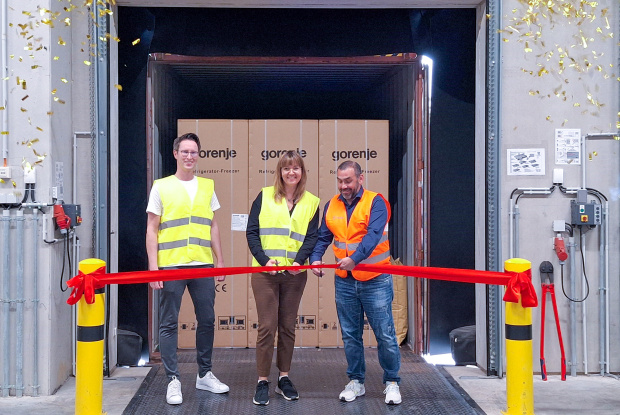E-Commerce: Quest for the right helmsman

Since July 2021, new rules on how to pay and to calculate value added tax on cross-border online sales have come into effect within the EU. To take the pressure off eCommerce players, FIEGE has partnered with the Berlin tech company, countX.
“Any new tax has something remarkably uncomfortable for those having to pay or even only to advance it” – Otto von Bismarck already knew this. Many online retailers are currently also faced with this problem: Since July, a new threshold applies EU-wide for mandatory value added tax payments on cross-border eCommerce transactions. According to this, businesses must pay value added tax (VAT) in the destination country once the EUR 10,000.00 mark has been reached for transactions across all countries combined instead of – as before – on annual revenues of EUR 35,000.00 per country.
This change comes with far-reaching consequences: “The EU’s central One-Stop-Shop (OSS) reporting system may simplify the compliance-compatible provision of information, but smaller and mid-sized companies in particular are having a hard time with the new rules”, as Daniel Michael, Head of Sales and Marketing at countX GmbH explains. Many SME simply do not know of the obligation or are overwhelmed with the correct implementation because before the rules came into effect, they did not apply to them. The team at countX therefore devised a software which specialises in handling the payment of value added taxes for cross-border eCommerce transactions of retailers which also guarantees the correct recording of the process flows. Lars Peter Stefanowski, Director Commerce Services at FIEGE, says: “Many companies turn to us because they are looking for logistical support in internationalisation and the development of new markets. countX’s expertise is a valuable addition to our Commerce Services portfolio, which is geared towards this. In the end, it will be our customers who benefit the most.”
Needle in the haystack
The job calls for special know-how and meticulous precision in preparing the data. The duty to pay value added tax comes into effect in every EU member country where the respective proceeds are generated – yet at the tax rates that apply there. While VAT payments may have ranged in the past somewhere between a maximum seven and nineteen per cent, they now need to be added at the varying foreign, and at times lower tax rates, the expert Daniel Michael explains: “This changes the underlying data needed for accurate reporting, which is literally an invitation for errors.” And that is precisely where the problem lies: Faulty processes often remain below the radar until they pop up when the tax office conducts a financial audit – meaning when it’s already too late. “The mills of the authorities grind slowly while in the background, the respective potential risk is brewing.”
Crazy labyrinth
A further challenge is to actually establish the value added tax that is due. “If a US-based company stores merchandise in Germany and ships it to Italy or Great Britain, which tax rate is payable? And is the corresponding invoice the right one?”, is how Michael outlines the difficulty. Even Fulfillment by Amazon (FBA) facilitates incorrect reporting since products may be stored beyond one’s own national borders. These possible combinations of cross-border deliveries are endless. “The first and most important step is to create awareness of the subject and related risks and then create a legally dependable illustration of the topic. Our software sets an automatic approach for this in order to meet the complex requirements of our customers in a scalable set-up”, the expert explains.
Ignorance is no defense
The resulting risks must not be underestimated. “The smallest problem in this regard would be to be paying too much value added tax. However, accidentally failing to comply with this duty is considered tax evasion”, Michael says. Many businesses trust their tax consultants blindly with this. But that is neither always the safe option: “We see that many consultants are not necessarily well-versed in eCommerce and often forward data from the ERP system or from outgoing invoice ledgers more or less without checking them”, Michael outlines.
From first advice to final implementation
The solution to all these problems has a name: countX. The team handles all issues regarding international value added tax payments for online retailers. “Next to processing OSS reporting, we provide assistance with registering any possibly required foreign VAT IDs, handle ongoing due reporting abroad, review the data base and outgoing invoices as well as the preparation of revenues to smoothly integrate them into a German accounting system”, is how Michael describes the portfolio of services. New customers will also find that the website offers a first free consultation.
One hand washes the other
To make even better use of the synergies in future, FIEGE hat signed a partnering agreement with countX, as Stefanowski explains: “Thanks to the specific know-how we can expand our own service portfolio with a further important.” For this, FIEGE’s fulfilment experts prepare an initial assessment, followed by a detailed analysis with the assistance of their countX colleagues. “If the service becomes relevant for our customers, the companies benefit from the already existing interfaces of both systems,” Stefanowski describes. “That’s why, in the opposite direction, we can also easily serve as a fulfilment provider for countX’s contractual partners.”



